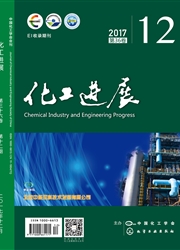

 中文摘要:
中文摘要:
相比于传统动力系统,基于燃料电池的动力系统具有很多优点,但在实际运用中仍有许多亟需解决的问题,其中包括燃料电池系统的低温启动问题。本文对比了各种燃料电池低温启动方案的工作机理及其优缺点,归纳并分析了氢气催化燃烧所用催化剂和催化燃烧反应过程以及燃料电池低温启动过程等方面的相关研究成果,研究了影响催化燃烧的主要因素,得出以下结论:基于氢气低温催化燃烧的燃料电池低温启动策略具有较高的可行性;在不同反应模型的情况下,氢气都可以在微尺度管道内实现稳定的燃烧;表面催化反应对空间气相反应有抑制作用;空间气相与表面催化的耦合反应能得到最高的温度;氢气/空气预混合气体入口流速、导热壁及导热壁材料、管径和当量比均对催化燃烧有着重要的影响。
 英文摘要:
英文摘要:
When contrasting with traditional power system, fuel cell has a lot of advantages. But it still has many practical problems, such as low-temperature cold startup. Different strategies of fuel cell cold startup were discussed. Some related researches on hydrogen catalytic combustion and fuel cell cold startup were summarized and analyzed and the factors affecting the catalytic combustion were investigated. Hydrogen low-temperature catalytic combustion provided one way to achieve effective and reliable startup of fuel cell. Hydrogen could achieve stable combustion in a micro-tube for different reaction models. Surface catalytic combustion restrained gas phase combustion. The highest temperature could be obtained when surface catalytic combustion and gas phase combustion occurred at the same time. Inlet velocity, conductive wall and its material, tube diameter as well as equivalent ratio of hydrogen/air mixture had significant influence on catalytic combustion of hydrogen.
 同期刊论文项目
同期刊论文项目
 同项目期刊论文
同项目期刊论文
 The application of Ir-V/C catalyst as a durable anode catalyst for a 1.5 kW proton exchange membrane
The application of Ir-V/C catalyst as a durable anode catalyst for a 1.5 kW proton exchange membrane Ir-V nanoparticles supported on microstructure controlled carbon nanofibers as electrocatalyst for o
Ir-V nanoparticles supported on microstructure controlled carbon nanofibers as electrocatalyst for o Pulse-Microwave Assisted Chemical Reduction Synthesis of Pt/C Catalyst and Its Electrocatalytic Oxyg
Pulse-Microwave Assisted Chemical Reduction Synthesis of Pt/C Catalyst and Its Electrocatalytic Oxyg Pt/C catalyst for PEMFC synthesized by a pulse microwave-assisted solvent chemical reduction process
Pt/C catalyst for PEMFC synthesized by a pulse microwave-assisted solvent chemical reduction process Effect of Microwave Power and Irradiation Time on the Performance of Pt/C Catalysts Synthesized by P
Effect of Microwave Power and Irradiation Time on the Performance of Pt/C Catalysts Synthesized by P 期刊信息
期刊信息
